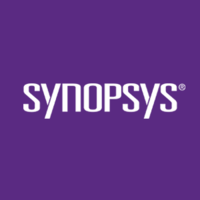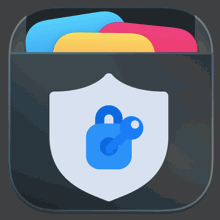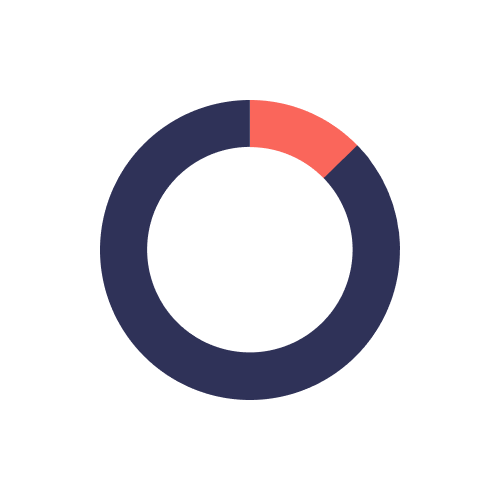Description
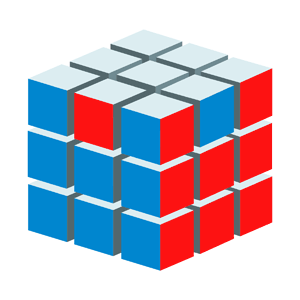
ImmuniWeb® On-Demand
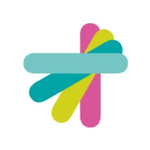
Kiuwan
Comprehensive Overview: ImmuniWeb® On-Demand vs Kiuwan
ImmuniWeb® On-Demand and Kiuwan are both cybersecurity solutions that aim to help organizations enhance their application security, but they cater to slightly different aspects of application security testing and serve somewhat different markets. Here's a comprehensive overview of each:
ImmuniWeb® On-Demand
a) Primary Functions and Target Markets
- Primary Functions: ImmuniWeb® On-Demand provides a range of application security testing services, including web and mobile application vulnerability assessments, penetration testing, and continuous security monitoring. It employs AI and machine learning to enhance the efficiency of its security testing processes, providing users with insights into vulnerabilities, compliance, and remediation steps.
- Target Markets: The primary markets for ImmuniWeb® are enterprises and organizations that need to ensure their web and mobile applications are secure and compliant with various regulations such as GDPR, PCI DSS, and others. Sectors such as finance, healthcare, and e-commerce are typical targets due to their high-security requirements.
b) Market Share and User Base
- Market Share: ImmuniWeb is recognized in the cybersecurity industry as a premium provider, particularly valued for its AI-enhanced capabilities and high accuracy in identifying vulnerabilities. It's part of a competitive market with other strong players like Veracode, Checkmarx, and WhiteHat Security.
- User Base: They are typically adopted by medium to large enterprises that require comprehensive security assessments and value a platform that integrates continuous assessment and compliance reporting.
c) Key Differentiating Factors
- AI and Machine Learning: ImmuniWeb is particularly known for leveraging AI to improve the accuracy and depth of its security testing.
- Comprehensive Compliance Reporting: Provides detailed compliance reports which are crucial for many of its users in regulated industries.
- Manual Penetration Testing: Unlike some automated testing solutions, ImmuniWeb emphasizes a hybrid approach that combines automated scans with manual testing by security experts to uncover complex vulnerabilities.
Kiuwan
a) Primary Functions and Target Markets
- Primary Functions: Kiuwan focuses on static application security testing (SAST) and software composition analysis (SCA). It is used to identify security vulnerabilities in source code as well as to assess the risk in open-source components.
- Target Markets: It is targeted towards developers and security teams within organizations that are developing applications in-house. Industries that develop custom software, including technology firms, and sectors like banking and government, are typical users.
b) Market Share and User Base
- Market Share: Kiuwan is a popular choice among developers due to its integration capabilities and ease of use, allowing it to fit seamlessly into continuous integration/continuous deployment (CI/CD) pipelines. It competes with other SAST tools like SonarQube, Fortify, and Coverity.
- User Base: Primarily used by development teams and security professionals in organizations of varying sizes, from SMBs to large enterprises, that prioritize integrating security into their development lifecycle.
c) Key Differentiating Factors
- Developer-Centric: Kiuwan is built to integrate smoothly with development tools and processes, making it an excellent choice for organizations focused on DevSecOps.
- Comprehensive SCA: It offers robust capabilities for software composition analysis, which helps teams manage open-source risks alongside proprietary code vulnerabilities.
- Decision-Making Tools: Provides metrics and dashboards to help manage security risks and prioritize fixes based on business impact.
Comparative Summary
- ImmuniWeb® On-Demand is better suited for organizations looking for a blend of automated and manual security assessment across their web and mobile applications and with a strong emphasis on compliance.
- Kiuwan excels in environments focused on software development security, offering tools that integrate into development pipelines to manage security and quality throughout the software lifecycle.
Both products address critical aspects of cybersecurity, but they best serve different stakeholder needs within the application security ecosystem.
Contact Info

Year founded :
Not Available
Not Available
Not Available
Not Available
Not Available

Year founded :
2012
+1 732-895-9870
Not Available
United States
http://www.linkedin.com/company/kiuwan
Feature Similarity Breakdown: ImmuniWeb® On-Demand, Kiuwan
When comparing ImmuniWeb® On-Demand and Kiuwan, both platforms are primarily designed to assist organizations with application security testing and vulnerability management. Here's a breakdown of their similarities, differences, and unique features:
a) Core Features in Common:
Both ImmuniWeb® On-Demand and Kiuwan provide several core features typical of application security and quality assurance platforms:
-
Vulnerability Detection: Both platforms offer capabilities for detecting security vulnerabilities within codebases, which helps developers identify and mitigate security risks.
-
Static Application Security Testing (SAST): They include SAST features, allowing for the analysis of source code to identify potential security vulnerabilities early in the software development lifecycle.
-
Compliance Reporting: They provide compliance reporting to ensure that applications meet various industry standards and regulations, such as OWASP, PCI-DSS, and others.
-
Integrations: Both platforms can integrate with popular development tools and CI/CD pipelines, making it easier to incorporate security testing in the development workflow.
-
Dashboard and Reporting: Each solution offers a user dashboard with reporting tools that allow users to visualize and export detailed security and quality reports.
b) User Interface Comparisons:
While specific user interface elements can change over time with updates, general observations can be made:
-
ImmuniWeb® On-Demand: Known for its clean, intuitive design with an emphasis on ease of use, ImmuniWeb’s interface focuses on getting users to actionable insights quickly. It often features a minimalistic yet professional layout, prioritizing clear visualizations of vulnerabilities and risk levels.
-
Kiuwan: Kiuwan’s interface is comprehensive and feature-rich, catering to both security and code quality needs. It provides in-depth dashboards that accommodate different user roles, from developers to security auditors, with a focus on modular and customizable views.
Overall, the user interfaces of both platforms are designed to facilitate ease of navigation, although ImmuniWeb might lean more towards simplicity, while Kiuwan gives extensive customization options.
c) Unique Features:
Each platform offers unique features that can set it apart from the other:
-
ImmuniWeb® On-Demand:
- AI and Machine Learning: ImmuniWeb leverages AI and machine learning to enhance the accuracy of vulnerability detection and reduce false positives.
- On-Demand Services: The platform provides on-demand security assessments, which can be particularly useful for organizations needing flexible testing schedules.
-
Kiuwan:
- Code Quality Analysis: In addition to security, Kiuwan places significant emphasis on code quality, enabling organizations to perform both security and quality assessments in a single platform.
- Multi-language Support: Kiuwan supports a wide range of programming languages, making it suitable for diverse development environments.
- Software Composition Analysis (SCA): Kiuwan includes SCA capabilities to manage open source components and their vulnerabilities.
These unique features cater to different aspects of application security and quality needs, allowing organizations to choose the platform that best matches their specific requirements and workflows.
Features

Not Available

Not Available
Best Fit Use Cases: ImmuniWeb® On-Demand, Kiuwan
To determine the best fit use cases for ImmuniWeb® On-Demand and Kiuwan, it’s essential to understand the strengths of each product and how they cater to specific business needs across various industries and company sizes.
a) ImmuniWeb® On-Demand
Best Fit Use Cases:
-
Businesses Focused on Application Security:
- Industries: Financial services, healthcare, and e-commerce where application security is paramount.
- Scenarios: Organizations needing compliance with strict regulatory requirements (e.g., GDPR, PCI DSS), and those frequently handling sensitive data.
-
Rapid Development Cycles:
- Companies involved in agile development can benefit from on-demand security testing without being slowed down by traditional long-duration assessments.
-
Companies Lacking In-house Security Expertise:
- Small to medium-sized enterprises (SMEs) that do not have a dedicated security team can leverage the service for comprehensive security assessments.
-
Project-Based Vulnerability Assessments:
- Useful for projects requiring an immediate and thorough security evaluation, such as new application launches or major application updates.
b) Kiuwan
Preferred Use Cases:
-
Software Development Firms:
- Industries: Suitable for manufacturing, telecommunications, and technology companies focused on software development.
- Scenarios: Companies looking to integrate security into their DevOps pipeline and wanting static application security testing (SAST) to detect vulnerabilities early in the development process.
-
Enterprise-Level Code Management:
- Preferable for large organizations managing vast codebases, requiring continuous code quality and security assessments.
-
Regulatory Compliance and Risk Management:
- Businesses needing to demonstrate compliance with industry standards can benefit from Kiuwan’s comprehensive analysis capabilities.
-
Code Quality Monitoring:
- Useful for projects or industries where high code quality is vital (e.g., aerospace software or medical device applications).
d) Industry Verticals and Company Sizes
ImmuniWeb® On-Demand:
- Industries: Focuses largely on sectors with high regulatory and security requirements like finance, healthcare, and government.
- Company Sizes: Appeals to both SMEs and large enterprises, but may particularly be advantageous to SMEs for the cost-effective, expert-level security insights it provides without needing a large internal security staff.
Kiuwan:
- Industries: Serves a broad range of industries due to its focus on code quality and security, including software development companies across various verticals.
- Company Sizes: More suitable for medium to large enterprises with established development teams looking for an integrated approach to code security and quality as part of their software development lifecycle (SDLC).
In summary, ImmuniWeb® On-Demand is best for projects needing quick, expert security assessments, especially where compliance is critical, and for businesses of any size lacking in-house security teams. Conversely, Kiuwan is ideal for larger enterprises with a focus on dev-centric processes, needing to maintain high code security and quality throughout their development cycles. Both products cater to specific industry requirements, with ImmuniWeb® having a stronger appeal in highly regulated sectors and Kiuwan catering to software-centric industries.
Pricing

Pricing Not Available

Pricing Not Available
Metrics History
Metrics History
Comparing teamSize across companies
Conclusion & Final Verdict: ImmuniWeb® On-Demand vs Kiuwan
Conclusion and Final Verdict
When evaluating security solutions like ImmuniWeb® On-Demand and Kiuwan, it's important to weigh factors such as features, ease of use, cost, customer support, and specific use-case requirements. Both solutions have their unique strengths and cater to different aspects of application security.
a) Best Overall Value
ImmuniWeb® On-Demand generally offers a compelling value for organizations prioritizing a comprehensive, AI-driven approach to application security with a strong focus on legal and regulatory compliance. It provides a wide range of services, including vulnerability scanning, penetration testing, and monitoring, integrated into a single platform.
Kiuwan, on the other hand, is ideal for organizations that require a strong focus on software analytics and code security, with robust integrations into the DevOps pipeline. It offers powerful static application security testing (SAST) and software composition analysis (SCA), helping developers create secure applications by identifying vulnerabilities early in the software development lifecycle.
Considering all the factors, if an organization needs a solution that covers broader compliance and dynamic web security testing, ImmuniWeb® On-Demand might be the better overall value. For a development-heavy focus on code security and integration within CI/CD processes, Kiuwan might be more valuable.
b) Pros and Cons
ImmuniWeb® On-Demand
-
Pros:
- Comprehensive coverage of application security testing needs.
- AI-driven security assessments improve accuracy and efficiency.
- Strong capability in vulnerability management and regulatory compliance.
- Continuous monitoring with real-time updates.
- Excellent for organizations needing detailed reports for compliance purposes.
-
Cons:
- May be more expensive depending on the required features and scale of deployment.
- Might offer more features than necessary for organizations with a specific focus on code-level security.
- Advanced features require a learning curve to fully leverage their potential.
Kiuwan
-
Pros:
- Excellent integration capabilities with CI/CD tools, enhancing DevOps practices.
- Strong focus on SAST and SCA, making it useful for development teams seeking code-level security insights.
- Detailed code analysis supports developers in early vulnerability detection.
- Flexible licensing options, suitable for varying scales of use.
-
Cons:
- May not cover as broad a range of security testing aspects as ImmuniWeb®.
- Initial setup and configuration for intricate use cases can be complex.
- Focuses mainly on the developer and code security, potentially leaving out broader web application security testing.
c) Specific Recommendations
-
Assess Current Needs: Organizations should conduct an internal assessment to define their key security needs, budget constraints, and specific regulatory requirements. This understanding can guide their choice.
-
Integration with Existing Systems: It is important to consider how each tool will integrate with existing systems and workflows. If seamless integration within a DevOps pipeline is crucial, Kiuwan might be the preferred choice.
-
Trial and Evaluate: Both products offer trials or demos - potential users should take advantage of these to evaluate features, user interface, ease of integration, and overall usability.
-
Focus on Compliance & Monitoring: If the business has strict compliance needs and requires continuous monitoring, ImmuniWeb® On-Demand may be more suitable.
-
Consult with Stakeholders: Engage teams who will be regularly using the software (such as developers, security analysts, and compliance officers) in the decision-making process to ensure the chosen solution meets their practical requirements and preferences.
In conclusion, the decision between ImmuniWeb® On-Demand and Kiuwan should be guided by specific security goals, the importance of compliance, and the desired level of integration with existing development processes. Each solution excels in its respective focus areas and can provide significant value when aligned with organizational needs.
Add to compare
Add similar companies

